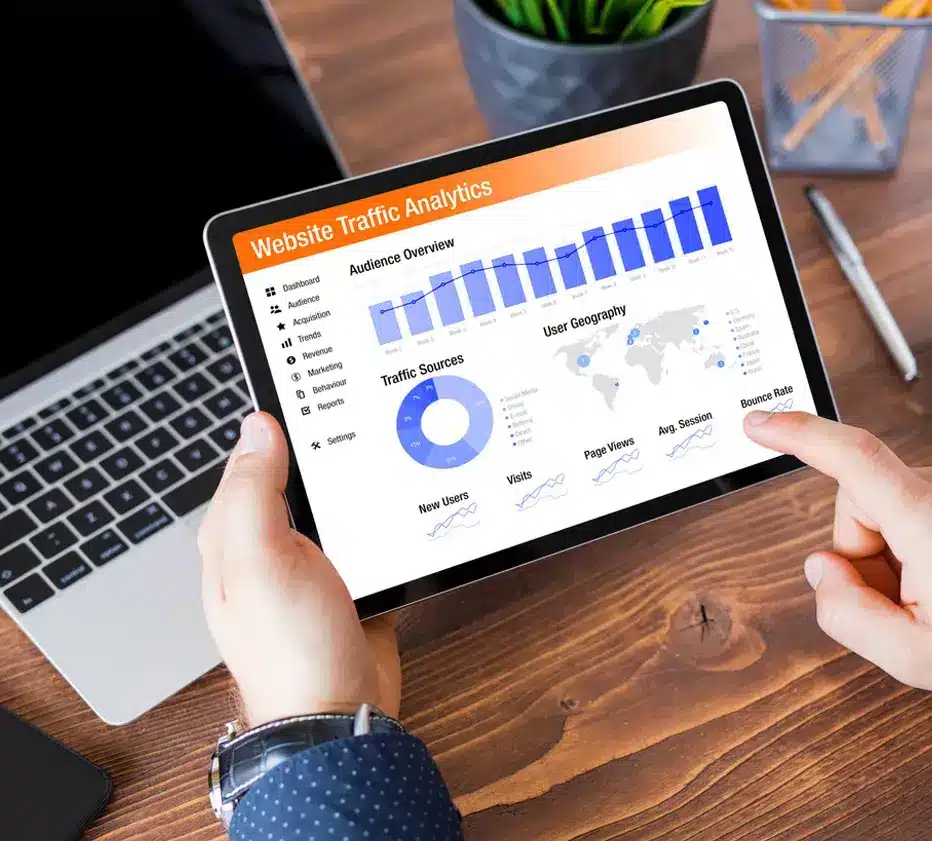Google constantly updates its algorithm to enhance the customer experience. Its most recent update happened in April 2023 and is called the “Product Reviews Update.” The new update includes reviews of goods, services, and things and relies on experience-based signals. Although Google has released updates for product reviews in the past, this is the first time the leading search engine has released an update that addresses all types of reviews. This time, it comes with updated Google Search Central advice on the kinds of content the business’ Reviews System Algorithm might be looking for.
But before discussing the new updates, let us understand the Google algorithm.
Google Algorithm
The approach Google implements to rank information is called the Google Search Algorithm. While ranking, Google considers numerous aspects such as keyword mentions, usability, and backlinks. Google uses complex algorithms to quickly present the most relevant results for a query by gathering data from its search index. The search engine returns websites that are ranked according to relevance using a variety of algorithms and ranking criteria on its search engine results pages (SERPs).
Any new Google update may impact the keyword rankings and the traffic on the website. Thus, when any new update happens, one can see a change in the ranking of their website. However, it is not always the updates that impact Google’s ranking, so one needs to watch out if the Search Engine Optimisation (SEO) is implemented appropriately on the website. Some of the SEO methods that one needs to watch out for are:
- Mobile-friendliness: A website which is mobile-friendly will have more traffic resulting in it having more visibility and higher ranking.
- Content relevance: Google algorithm pays a close attention to the information available on the content. A high-quality and relavant content will always rank well. Thus, agencies should focus on creating authentic content which holds value for its users. The content should also be revised on a regular basis as Google also values the freshness of the content.
- Backlinks: The algorithm considers the quality and quantity of backlinks pointing to a website as a measure of its authority and trustworthiness. High-quality backlinks from reputable sources can positively impact search rankings. SEO strategies often involve link building and earning authoritative backlinks.
- Local SEO: A website should also target local keywords to be more visible to local users. The keywords must have proximity, relevance, and prominence to determine the local search ranking.
Moreover, the website’s ranking can also be affected by its responsiveness, usability, and site speed. Sites with slow page speeds are expected to start suffering even more after updates, as Google has hinted that they would rely more heavily on these metrics as ranking factors.
Google’s Review Update
Google’s updated Reviews documentation places significant emphasis on factors like experience, expertise, authoritativeness, and trustworthiness. This suggests that the Review System may prioritize evidence of experience rather than mere text-based information. The new documentation encourages publishers to provide tangible proof of their experience. The review system evaluates articles, blog posts, standalone content, and similar materials that aim to offer recommendations, opinions, or analyses. It does not assess third-party reviews posted by users in product or service review sections. Reviews can cover a wide range of topics, including individual items, comparisons, or ranked lists of recommendations. They can pertain to products like laptops or winter jackets, media such as movies or video games, or services and businesses like restaurants or fashion brands. While the system primarily evaluates review content on a per-page basis, sites with a substantial amount of review content may have their entire site evaluated.
The new documentation outlines several signals of experience, including visual evidence, audio, links to supporting evidence, and quantitative measurements. These signals demonstrate that the product has been tested, used, and measured. This update sets a higher standard for product reviews. In the absence of higher quality reviews, lower quality ones may still rank, but this should not be seen as an indication of the Reviews System’s failure. It may simply reflect the overall quality of the product reviews. If competitors are ranking with fake signals of experience, such as using experience-related phrases, it may be beneficial to go the extra mile and provide genuine evidence of experience, such as original photos and relevant quantitative measurements. Currently, this system applies globally to the following languages: English, Spanish, German, French, Italian, Vietnamese, Indonesian, Russian, Dutch, Portuguese, and Polish.
Look at it from the user’s perspective: By putting yourself in the reader’s shoes, consider what information would be most beneficial to them.
- Prove your expertise: Show that you are knowledgeable about the topic, whether you work as an editorial staff member, an expert staff member, or a blogger for a news or publishing website.
- Provide supporting evidence: Use images, sounds, or links to support the veracity of your review and highlight your interaction with the good or service.
- Share quantitative measurements: Give readers the information they need to make decisions by describing how the item performs across various performance categories.
- Highlight unique features: Describe how the good or service differs from those of the competition.
- Compare the available options: For specific applications or situations, discuss alternatives and provide recommendations.
- Talk about advantages and disadvantages: Utilize original research and your own experience to inform your analysis.
- Indicate how a product evolves: Describe how a product has changed over time or resolved problems in the past.
- Focus on key decision-making factors: Decide which factors are most crucial based on your knowledge (for example, safety and fuel economy in a car review).
- Examine options: Discuss how choices affect users rather than just the manufacturer’s claims.
- Add helpful resources: To assist readers in making wise judgements, include connections to further materials (either from your own website or those of other sites).
- Consider numerous merchants: Include links to other sellers to give readers the choice of purchasing from their favourite retailer.
- Support your suggestions: When stating something is the greatest, back up your assertion with first-hand information.
- Make independently ranked lists: Even if you write separate, in-depth single reviews, your ranked lists should have enough helpful information to stand on their own.
- Explain affiliate links clearly: If you use affiliate links in your reviews, be open about them and adhere to Google’s affiliate program policies.
Google Search Ranking System Guide Updated
Four ranking systems were recently removed from Google’s list of documented ranking systems as part of an update. Here are the four key Systems that have been mentioned as retired systems
- Secure Sites System
- Page Speed Systems
- Mobile-Friendly Ranking System
- Page Experience System
Reviewers who “share in-depth research, rather than thin content that simply summarizes a bunch of products, services, or other things” will be rewarded by the update, it is intended to say.
Below is the link to the old version of the official ranking systems guide page from Google https://web.archive.org/web/20230301093645/https://developers.google.com/search/docs/appearance/ranking-systems-guide
When removing items from the list, Google has its own procedure. Interestingly, Google stopped using the page experience system but left it on the primary list. The remaining elements—such as mobile-friendliness rankings, page speed, and secure site systems—were also removed from the list of retired elements. The tutorial explaining Google’s ranking systems—the “underlying technologies” that generate search engine results pages—was removed in parts. In the past 18 months, Google has talked extensively about the value of the page experience, so its abrupt disappearance is intriguing.
The term “page experience” refers to a system that evaluates many aspects of a website, such as load time, speed, and stability, to make sure it provides a top-notch user experience. The phrase “mobile-friendly” and the terms “secure site” were also taken out of Google’s guide and a few other systems that are related to it.
The action was taken days after Google deleted a few reports from its analytics programme, Google Search Console, that were relevant to page experiences. The changes indicate that page experience, if it ever was, is no longer a significant factor in Google’s ranking algorithm. According to Google, it was only ever intended to be a concept to aid webmasters and SEOs in concentrating on page-related changes and never existed as a “separate ranking system”.
“Google Search always seeks to show the most relevant content, even if the page experience is subpar,” the search engine company noted. Faster pages and content created specifically for mobile devices are essential for meeting user expectations, but they won’t significantly affect search engine rankings. That’s likely good news for SEOs and content producers, who can now concentrate on enhancing content quality and increasing interaction rather than worrying about technical intricacies.
An insight into other updates:
Nearly every day, Google modifies its algorithm, and it publishes significant updates that may drastically impact rankings twice or three times a year. To stay caught up in the SERPs due to a Google penalty or change in search intent, it’s critical to keep up with Google’s ranking criteria.
Among the significant Google changes are the following:
- Intrusive Interstitials Update: The Intrusive Interstitials Update is an algorithm change implemented by Google. It focuses on improving the mobile browsing experience by targeting intrusive interstitials, which are pop-ups or overlays that can obstruct the main content of a webpage. The update was first introduced on January 10, 2017. The purpose of this update is to penalize websites that use intrusive interstitials that may negatively impact the user experience on mobile devices. Google aims to prioritize websites that provide a smoother and more accessible browsing experience for mobile users.
- Shift to Mobile-First Indexing (Called “Mobilegeddon”): Google’s shift to mobile-first indexing represents a significant change in how search results are determined and displayed. Traditionally, Google’s indexing and ranking algorithms primarily used desktop versions of websites to evaluate their relevance and quality. However, with the increasing prevalence of mobile devices for browsing the web, Google recognized the need to prioritize mobile-friendly experiences.
- Mobile-first indexing means that Google now primarily crawls and indexes the mobile version of a website for its search results and ranking. This change reflects the shift in user behavior towards mobile devices and ensures that search results are better aligned with the majority of users’ experiences.
- RankBrain: Rolled out in 2015, RankBrain is an artificial intelligence which aimed at understanding search engine questions better and improving search engine results. It determines the importance and ranking of web pages. It is a technique to analyse and interpret search queries that has not been encountered before. In other words, it helps Google to better understand the context and meaning of complex and ambiguous queries, providing more accurate search results to users.
- Panda: It was launched in 2011 by Google to eliminate black hat SEO tactics and webspam. The Panda algorithm, which was adopted as a ranking component, was created to classify pages according to their quality. It was internally utilised and based on human quality ratings.
- Penguin: Penguin algorith was introduced by Google in April 2012 and focused on identifying and penalizing websites that engage in spammy or manipulative link building practices. It means, it targeted websites that violate Google’s guidelines by using unnatural or low-quality backlinks to manipulate search engine rankings. Some of the malpractices that Penguin identifies include link schemes, using link farms, or over-optimizing anchor text. An affected website may experience a reduction in search engine results pages (SERPs) when Penguin discovers such link manipulation on the site. The amount of the infringement and the number of spammy links implicated determine the severity of the penalty.
- Hummingbird: Hummingbird was launched in 2013 and it intended to change the way Google reacts to different types of queries. It’s a novel technique to comprehend a search query’s overall meaning rather than just its individual phrases. With Hummingbird, the use of keyword synonyms has been optimised; currently, Google displays more results that are theme-related rather than showing results with precise phrases or keywords.
In conclusion, the Google Search Algorithm is constantly changing, but one thing is common it aims to generate the best results for its users. Thus, one thing that remains constant to provide high-quality results which can only be obtained by the basics of SEO and high quality content. So, you can rank on the SERPs if you pay close attention to the ever-changing ranking criteria. Thus, it is best to produce high-quality content that is in cognizance of your search keywords. Moreover, you should constantly update your articles to keep them fresh. You should also ensure that users have a positive experience on your website. Last but not the least, you should also focus on creating backlinks from appropriate domains.






